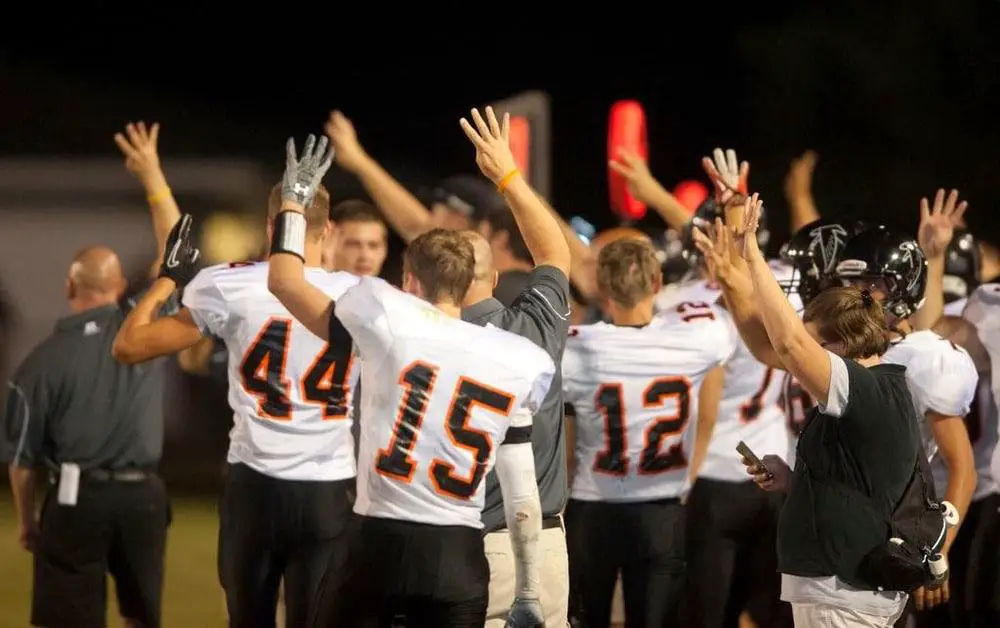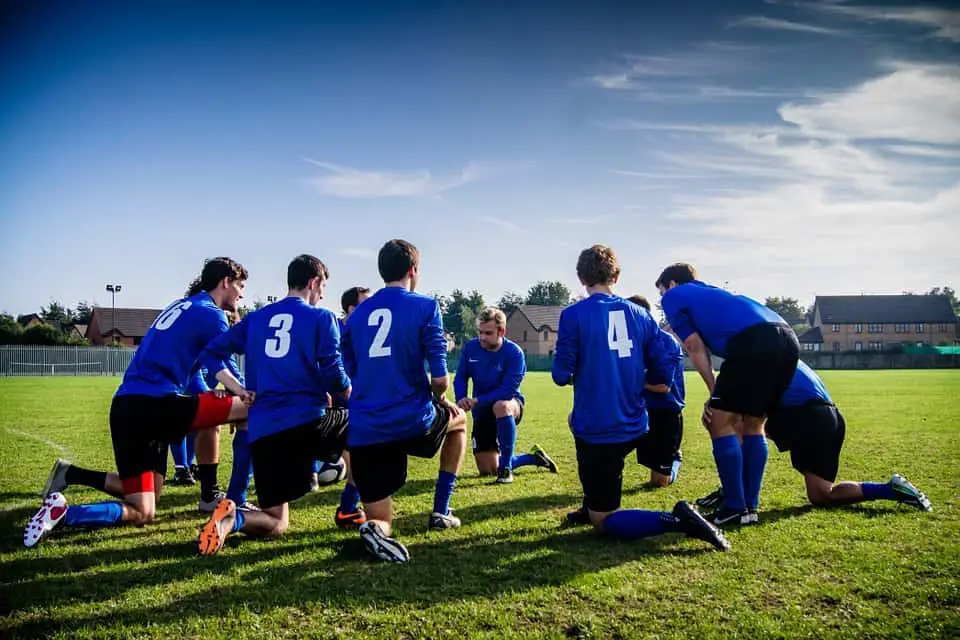Table of Contents
*This post may contain affiliate links. As an Amazon Associate we earn from qualifying purchases.

Being a team player is important in any social situation, such as in a classroom or in a workplace, but it is certainly a requirement when it comes to being part of a team sport. Whether you are actually competing as a member of a team or simply practicing a team sport for fun, you have to be able to communicate with your teammates if you want to achieve the best possible result.
You also need to show your teammates that you can be reliable and they can depend on you to step up when needed. Finally, being open-minded and adapting to changing demands are also important qualities.
Team culture is huge in building success so take a look at yourself and read the information below to determine how you might develop some qualities that can help make you a team player.
To see the most popular books on team building just click here.

Developing Team Player Qualities
1. Communication
First, you need to develop communication skills. Whether it’s football, rugby, baseball, or basketball, you will have to rely on the players of your team to win the game. But this means your teammates will also have to depend on you, too!
Burton and Raedke, authors of the book, Sports Psychology for Coaches, defined communication as the act of expressing ideas or information, and emotions as well as understanding what is expressed by others. They make a great point reminding coaches and athletes that communication involves verbal (words) and nonverbal (tone, body language) messages, meaning what you say, and how you say it, both matter.
For example, being a good team player means nurturing the required qualities not only in yourself but also in the ones around you. Encouraging other members of your team to stay positive, focused, and committed to the game is vital for succeeding as a group.
This verbal communication can help create a positive culture. But you can show these qualities (non-verbal means) by “walking the talk” and being positive and focused on yourself.
Being consistent in both word and action can have a big impact on your teammates. Being empathetic towards your teammates and encouraging them to improve their own skills can mean the difference between success and staying focused or quitting and walking away too soon.
If players don’t talk through the objectives, strategies, and possible outcomes associated with each competition, they will have fewer chances of achieving good results. Good communication between players is key to building the team culture and having the team have shared and mutual goals.

2. Reliability
Successful teams have members that are reliable and commit themselves to the team goals. In sports, it is vital that each player knows his/her purpose and does the job right so that the others can do theirs.
Try to truly commit to every task that is handed to you and discipline yourself so that your teammates know that they can rely on you.
Be on time for each practice and game, show hard-working rather than talk about it, and remain focused on your tasks as a way to show others that you are a team member they can trust.
Maintaining high standards for your work will show your teammates that you are a strong member of the team and committed to team goals, that you can be trusted, and they can rely on you when needed.
3. Adaptability
Sports teams face changing conditions so team players must adapt well to changing situations. Try to work on your flexibility so that you adapt well to new factors and elements when they come up.
Be prepared, in other words, to tackle the unexpected. You’ll often have to change a strategy, a plan, a or a or a play. These changes could happen during a competition, without notice. It’s ideal to keep yourself prepared for any situation that might come your way. Being adaptable means stepping up when your teammates need you most.
Also, working on your adaptability will help you become more open-minded. If you are not fixated on a certain way of doing things, you are more likely to accept other people’s input on a subject. This can help you acknowledge good suggestions made by your colleagues and encourage you to accept feedback from others.
As long as you stay flexible to what takes place within the team, you can easily adapt to new situations. This way, if a sudden change occurs, it will not negatively impact your performance and you will be able to thrive under the pressure of a new challenge.
It’s important to try to stay positive when you’re collaborating with your teammates. Try to maintain a good attitude regardless of how frustrating or intense a training session or a competition gets. Becoming frustrated and negative will often not help you improve your results and could, at times, actually hinder your performance.
So, the challenge is to be a good teammate by practicing good communication, being reliable and being flexible so you can adapt and also take in suggestions from others. If team members can each work on these than changes are team culture will be positive.
Picture Sources: 1, 2.
